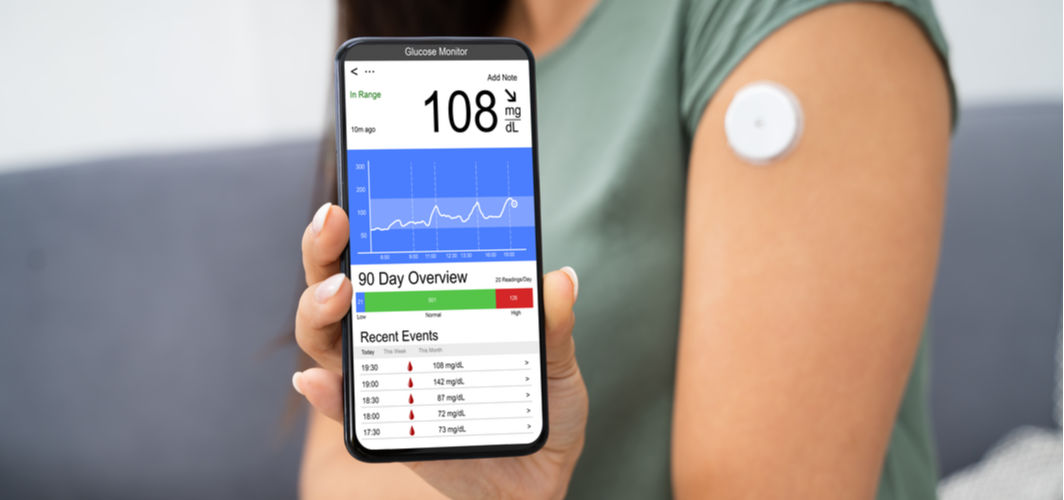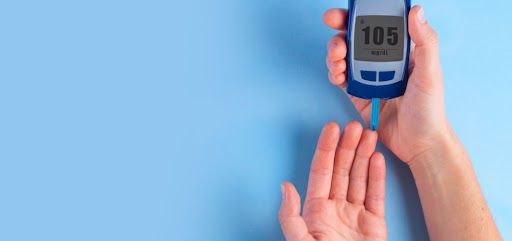Diabetes Management
Can Diabetes Cause Hormonal Imbalance?
2 min read
By Apollo 24|7, Published on - 08 October 2023
Share this article
0
0 like

Hormones are in charge of sending chemical signals to your organs, muscles, and other tissues through the blood to coordinate various bodily functions. They regulate a wide range of bodily functions, including metabolism, growth, immune responses, and mood. In this blog, we will explore the connection between hormones and diabetes.
Hormonal Imbalance in Diabetes
Multiple hormones work in sync to ensure the proper day-to-functioning of your body. Insulin, glucagon, cortisol, sex hormones and thyroid hormones are some of the hormones that get impacted in diabetes:
Insulin and Glucagon: The harmony between insulin and glucagon is necessary for maintaining stable blood sugar levels, but this balance gets disrupted in diabetes. In Type 1 diabetes, insulin deficiency leads to elevated blood sugar levels, while in Type 2 diabetes, insulin resistance prevents cells from responding adequately to insulin signals.
Cortisol: Stress can trigger hormonal imbalances in people with diabetes. Persistent stress can lead to elevated cortisol levels, which, in turn, can worsen insulin resistance and disrupt blood sugar control.
Sex Hormones: Diabetes can affect sex hormone levels, particularly in women. It can cause polycystic ovary syndrome (PCOS), insulin resistance, and irregular menstruation due to hormone imbalance. PCOS is more common in women with Type 2 diabetes.
Thyroid Hormones: Thyroid function can also be impacted by diabetes. Some individuals with diabetes may develop thyroid disorders, leading to either hyperthyroidism (an overactive thyroid) or hypothyroidism (an underactive thyroid), which can affect metabolism and overall health.
Management and Prevention
Managing diabetes effectively is crucial in preventing and mitigating hormonal imbalances. This includes:
- Consistent blood sugar monitoring
- Adhering to prescribed medications or insulin therapy
- Maintaining a balanced diet and a healthy weight
- Regular physical activity
- Stress management techniques, i.e. meditation and yoga
Conclusion
Understanding the connection between diabetes and hormones is essential to manage the condition better. Lifestyle choices, medications, and stress reduction can help individuals with diabetes to help restore hormonal balance and improve their overall well-being.
Diabetes Management
Consult Top Diabetologists
View AllLeave Comment
Recommended for you

Diabetes Management
Continuous Glucose Monitoring: How Does it Help?
CGM is a device that helps individuals with diabetes track their glucose levels continuously. A tiny sensor is inserted under the skin to measure glucose in the interstitial fluid. It helps individuals monitor glucose levels throughout the day and night, thereby allowing them to improve their HbA1c levels, reduce hypoglycemia events, and assess the impact of diet and exercise on glucose levels.

Diabetes Management
All You Need To Know About Diabetes
This comprehensive guide provides a detailed overview of diabetes mellitus, exploring its various types, causes, symptoms, diagnosis methods, complications, and treatment options. The article emphasizes the importance of understanding the causes and risk factors of diabetes, including heredity, insulin resistance, obesity, genetic disorders, hormonal imbalances, and unhealthy lifestyle choices.

Diabetes Management
New research: Will 50% of 20-year old urban Indians develop diabetes?
According to a research, there is a concerning projection that 50% of urban Indians in their 20s may develop diabetes. The primary factor behind this is being obese or overweight. Other factors behind this can be sedentary lifestyles, reduced physical activity, excessive use of electronic devices affecting sleep patterns, low lean mass, gestational diabetes, impaired glucose tolerance, and stress.
Subscribe
Sign up for our free Health Library Daily Newsletter
Get doctor-approved health tips, news, and more.
Visual Stories

8 Fruits That are Incredibly Healthy for Diabetes
Tap to continue exploring
Recommended for you

Diabetes Management
Continuous Glucose Monitoring: How Does it Help?
CGM is a device that helps individuals with diabetes track their glucose levels continuously. A tiny sensor is inserted under the skin to measure glucose in the interstitial fluid. It helps individuals monitor glucose levels throughout the day and night, thereby allowing them to improve their HbA1c levels, reduce hypoglycemia events, and assess the impact of diet and exercise on glucose levels.

Diabetes Management
All You Need To Know About Diabetes
This comprehensive guide provides a detailed overview of diabetes mellitus, exploring its various types, causes, symptoms, diagnosis methods, complications, and treatment options. The article emphasizes the importance of understanding the causes and risk factors of diabetes, including heredity, insulin resistance, obesity, genetic disorders, hormonal imbalances, and unhealthy lifestyle choices.

Diabetes Management
New research: Will 50% of 20-year old urban Indians develop diabetes?
According to a research, there is a concerning projection that 50% of urban Indians in their 20s may develop diabetes. The primary factor behind this is being obese or overweight. Other factors behind this can be sedentary lifestyles, reduced physical activity, excessive use of electronic devices affecting sleep patterns, low lean mass, gestational diabetes, impaired glucose tolerance, and stress.
